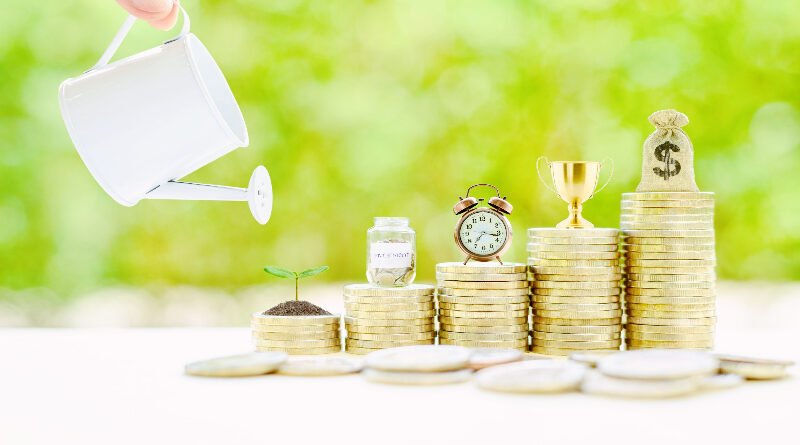Developing Healthy Emotional Habits Around Money
Money isn’t just about numbers—it’s deeply tied to emotions. How you feel about money can affect how you spend, save, or even avoid thinking about it altogether. Some people grow up with beliefs that money is a source of stress, while others may connect it with freedom or security. If these feelings aren’t managed, they can lead to unhealthy patterns like overspending, financial avoidance, or constant worry. That’s why developing healthy emotional habits around money is so important. For some, taking steps like debt consolidation in Arizona can be the first move toward lowering financial stress, but the deeper work involves reshaping how we think and feel about money on a daily basis.
Practicing Financial Mindfulness
Mindfulness is often associated with meditation or stress relief, but it’s just as powerful when applied to money. Financial mindfulness means being aware of your financial behaviors in the moment instead of operating on autopilot. For example, before making a purchase, pause and ask yourself if it aligns with your needs and long-term goals. Mindfulness can also help you notice emotional triggers—like shopping to relieve stress or ignoring bills out of fear. By bringing attention to these moments, you gain the power to make choices that support your well-being instead of reacting out of habit.
Becoming Aware of Money Beliefs
Everyone carries money beliefs shaped by their upbringing, culture, and personal experiences. Maybe you were taught that money should never be discussed, or that spending is a way to show love. Some of these beliefs help, but others can hold you back. Becoming aware of your money story allows you to question whether those beliefs still serve you. If you notice a pattern of guilt every time you spend on yourself, for example, you can work on replacing that belief with a healthier one: spending responsibly on joy is not wasteful, it’s part of balance.
Separating Self-Worth from Net Worth
A common emotional trap is linking personal value to financial status. People may feel successful when their bank account grows and worthless when it shrinks. This mindset creates unnecessary stress and often drives unhealthy financial behaviors. Developing healthier emotional habits means separating who you are from what you earn or own. Remind yourself that your worth is not defined by your paycheck, credit score, or possessions. By creating this separation, you’ll find it easier to make rational financial decisions instead of emotional ones.
Building Practical Routines that Support Calm
Emotions feel less overwhelming when you have practical routines to ground you. This could be as simple as setting aside time each week to review your budget, track expenses, or check progress on savings goals. Automating payments for bills and savings can reduce stress and eliminate the emotional weight of remembering due dates. Consistency creates security, and security reduces fear. When your financial routines become reliable, your emotions about money naturally become more stable too.
Setting Boundaries with Money
Healthy emotional habits also involve setting boundaries around money. This might mean learning to say no to unnecessary purchases, or having honest conversations with family and friends about financial expectations. Boundaries can also apply to your relationship with yourself. For example, setting a spending limit for leisure activities can help you enjoy them guilt-free, instead of regretting it later. Boundaries bring clarity and prevent emotions from taking over when making financial decisions.
Acknowledging and Processing Financial Stress
Avoiding financial stress only makes it worse. A healthier habit is to acknowledge those feelings and process them constructively. This might mean journaling about your concerns, talking with a trusted friend, or seeking professional advice. Naming your emotions—like anxiety about debt or guilt about spending—helps reduce their intensity. Once the feelings are out in the open, you can shift focus to finding solutions instead of staying stuck in worry.
Celebrating Financial Wins, Big and Small
Another emotional habit worth cultivating is celebrating progress, no matter how small. Paid off a credit card? Great. Stuck to your budget for a week? Celebrate it. Built up a small emergency fund? That’s a win. These celebrations don’t need to be extravagant—they’re about recognizing growth and reinforcing positive behavior. Acknowledging progress creates confidence, and confidence builds momentum toward bigger financial goals.
Final Thoughts
Developing healthy emotional habits around money means going beyond budgeting and spreadsheets. It’s about practicing mindfulness, challenging old beliefs, separating identity from finances, and creating routines that provide calm and clarity. By addressing the emotional side of money, you gain the stability to make smarter choices and reduce stress. Over time, these habits create not only stronger financial health but also a healthier relationship with yourself. When emotions and money work in harmony, financial decisions become less of a burden and more of an empowering part of life.
Also visit Digital Global Times for more quality informative content.

